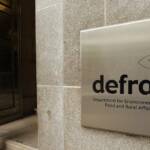The Department for Environment, Food and Rural Affairs (Defra) has invested more than £300 million in modernising its technology and digital services, as part of a sweeping effort to replace ageing systems and strengthen cybersecurity

A letter sent by David Hill, Defra’s interim permanent secretary, to Sir Geoffrey Clifton-Brown MP, chair of the Public Accounts Committee (PAC) outlines how Defra has made “significant progress” since the PAC’s 2023 report warned that critical legacy systems were putting public services at risk.
The previous report called for a complete overhaul of Defra’s IT systems to ensure air quality, safe food and water supply. The PAC Defra’s systems as “outdated, inefficient, expensive, at constant risk of failure or cyberattack.”
As a result, the department said it has spent £312 million during the 2022-25 spending period upgrading infrastructure, migrating legacy applications, and laying the groundwork for wider digital transformation.
Among the key achievements, Defra reports that it has upgraded more than 31,000 Windows 7 laptops to Windows 10 – despite Microsoft ending its support for the operating system last month.
Defra also patched 49,000 critical IT vulnerabilities and migrated 137 outdated applications onto supported platforms. It has also closed one legacy datacentre and plans to shut three more in the coming year.
If you liked this content…
One high-risk system, the Animal and Plant Health Agency’s SAM service – previously listed as one of the government’s top 25 riskiest IT systems – has now been migrated to Defra’s private cloud, which Defra said reduces operational risk and improves resilience.
Defra “Shifting from Remediation to Transformation”
The department’s letter acknowledges delays in its reporting, blaming the overlap with the 2024-25 Spending Review. It said new business cases have now been submitted for the next four-year spending period, covering further work on legacy system replacement, cloud migration, and digital service redesign.
“Our focus is shifting from remediation to transformation,” the letter noted, highlighting new ambitions to use automation and artificial intelligence (AI) to streamline paper-based processes and enhance user experience.
Defra’s digital priorities for the coming years include replacing thousands of end-of-life devices and smartphones, improving network infrastructure, and rolling out new digital platforms such as a Livestock Information Service for cattle tracing and new systems for agri-food border controls.
For the wider digital government community, the update offered a notable case study in long-term transformation within a complex, federated department. The PAC has previously pressed Whitehall to provide stronger evidence of the benefits from digital investment – and Defra now says it is building “clear benefit frameworks” to track both cost savings and service improvements.








